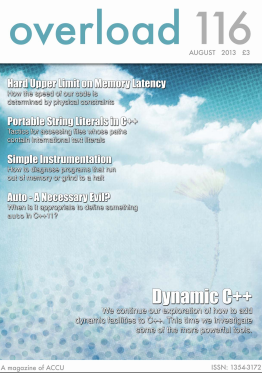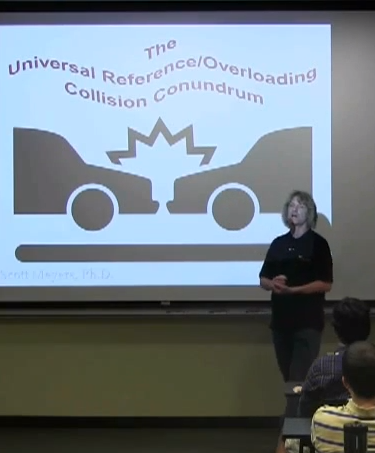Overload 116 available

Overload 116
Auto -- A Necessary Evil? Part 2 -- Roger Orr
When is the use of auto good, and when is it evil?
Dynamic C++, Part 2 -- Alex Fabijanic
Alex Fabijanic and Richard Saunders continue to explore dynamic solutions in C++.
Portable String Literals in C++ -- Alf Steinbach
How hard can it be to make a file in C++ with international text literals in its name? Alf Steinbach shows us how to write a file called π.recipe.
Hard Upper Limit on Memory Latency -- Sergey Ignatchenko
How low can latency really get?
... and more!

 The solution to the latest GotW problem is now available:
The solution to the latest GotW problem is now available: This open source REST SDK also supports Linux...
This open source REST SDK also supports Linux... This course is being held in English and German:
This course is being held in English and German: [Blog suggestion by NoSenseEtAl. Text below added by editor.]
[Blog suggestion by NoSenseEtAl. Text below added by editor.]